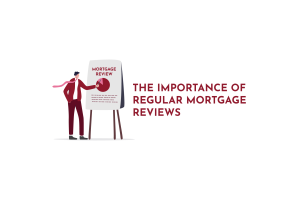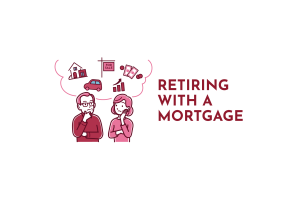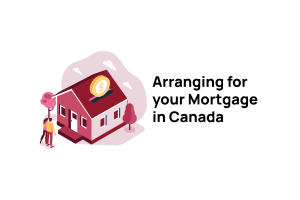For many generations when people needed a mortgage they went to the bank where they had their chequing account and spoke to whoever was in the office that day. They were told if they were approved or not and what their interest rate was and put forward very little in the way of questioning the outcome. This seems like a crazy way to do this and I believe that in today’s world you really do yourself a disservice by approaching mortgage lending in this way. Why would you go to a single institution when there is an option out there to work with a mortgage broker who is able to shop your situation to a wide variety of lenders and find you the best match for your particular situation as opposed to a single institution where they only can offer you solutions from one provider? The truth is that it seems like there’s a lot of misunderstood information about the mortgage industry out there. Let’s take a look at a few of the most common areas of confusion and try to make sure that when you choose a mortgage lender you are able to make the most informed decision possible.

In This Article:
The Difference Between a Mortgage Broker and the Bank
I am going to start here because it is one of the most important points I need to make. As I mentioned to start, many people simply walk into the financial institution where they do their daily banking, make an appointment with the mortgage agent in the branch and accept what is offered to them. This is the largest financial commitment that many people will make in their entire life and they put less thought into what they get than they do when they buy a car. Now consider that while they are working for you a mortgage broker needs to have knowledge of what is going on with the entire mortgage industry. This makes a big difference to consumers. If you are self employed as an example, some lenders will work better for you than others. A mortgage broker needs to know which lender fits your situation best. A banking representative just needs to know if their one particular line of products suits you. If they don’t have a solution that fits you it isn’t their job to offer you an alternative, this can lead to a frustrating experience of feeling like a square peg being forced into a round hole.
A second point to consider when deciding between working with a mortgage broker versus a bank is what happens if you need to break your mortgage before the term is up? There are penalties associated with doing this. The typical penalty is either three months interest or something called the interest rate differential (IRD), whichever is greater. Why the penalty exists is because when you entered into your mortgage you agreed to pay a certain amount of interest over a set period of time. This promise can be used to ‘sell’ your mortgage as an investment to different entities (mortgage funds are a type of mutual funds as an example). If you break the terms of the deal there is interest that the lender planned on receiving which won’t be paid. When rates have decreased since your loan was taken out the lender can’t go out and simply re-lend the funds and have the same amount of earnings that investors were promised. This needs to be accounted for. In this situation you could be looking at the IRD calculation if you are dealing with a bank. This is a complicated concept that involves the fact that most banks will have two interest rates. They will have a posted rate and a discounted rate. It is the difference between these two rates that often makes the IRD payment large. Most mortgage brokers don’t deal with lenders where there is a big difference between the posted and discounted rates so their IRD’s are often less than the three months interest that would be owed. This difference can be thousands of dollars and often isn’t well explained when you are looking at getting a mortgage from a big bank.
Here’s one more thing that I feel like kind of helps to seal the deal for why mortgage brokers are a better choice for homeowners. Most of the big banks will make their mortgage products available to mortgage brokers to place with their clients. Think about that for a second. You could go to your bank and get access to only what they sell, or, you could go to a mortgage broker and get access to the products that your bank would have offered you anyways but potentially better solutions that you wouldn’t have even known about if you weren’t using a broker. That sounds like a far better idea where you can feel confident that you are getting the best solution for your situation.

What is a ‘B’ Lender
So now that we’ve decided that a mortgage broker is right for you we need to look at another term that comes up. I was recently watching a sporting event on TV with someone and a commercial for EQ bank came on. They mentioned to me that this was who their mortgage was with and they were upset by this because EQ was a ‘B-lender’ in their mind (for the record both A & B loans originate with EQ bank). This isn’t the case and it made me think about something. Canadian homeowners don’t really understand what a ‘B-lender’ is. You assume that it is worse than an ‘A-lender’ because when you were in school getting an ‘A’ was better than getting a ‘B’ but is this really the case? You need to understand that a B-lender is an entity that can provide homeowners with mortgage funding when they don’t qualify with traditional lenders. They are subject to less federal regulation and, as such, B-lenders are able to offer more lenient criteria when approving someone for a loan. Understand that with the lower barriers to qualification it is often accompanied by higher interest rates. But, if this is the circumstance you find yourself in you may find dealing with a B-lender is the only way that a mortgage can get approved (think about a potentially murky credit history or unstable income sources). Just not being one of the major banks in Canada doesn’t automatically make it so that you are a B-lender. Where confusion happens is that people often mistake the idea of getting a B-lender mortgage with funding through a private lender. Private lenders are individuals looking to invest in mortgages directly. They tend to charge higher interest rates and will often charge additional fees as well. As is the case with most types of lenders, private mortgage financing fits a gap in the market where they can work with people who have hit a rough patch with their personal finances and they need a stopgap to get things back on track. All three types of lenders work together in the mortgage system to make sure that you have the access to mortgage solutions. In order to be able to take advantage of all of these options though you need to work with a mortgage broker. Dealing with your bank leads to you potentially missing out on two thirds of the options available to you.
Conclusion
For many people the purchase of a home is one of the most stressful events that they encounter in their lives. It requires so many moving parts to sync up at a single time to make sure that the deal closes when it is supposed to. Your legal team, land registry, realtors, mortgage brokers, movers, etc. all need to be on the same page for the process to go smoothly. With this amount of stress it is often tempting to take the path of least resistance. For many people the idea that they will just go to the bank and look after their mortgage takes the thought out of the ‘shop around’ portion of the process and makes it easier to manage in their minds. The problem with this is that in many cases someone’s mortgage is their largest bill every month. Why would you avoid taking the extra step of consulting a broker who works for you to find the best rates and solutions for your individual situation? Take the time to make sure that one of your largest financial commitments is not an undue burden because you wanted to make the easy decision. Canadian’s looking to get a mortgage can contact us at 705-710-0266.







